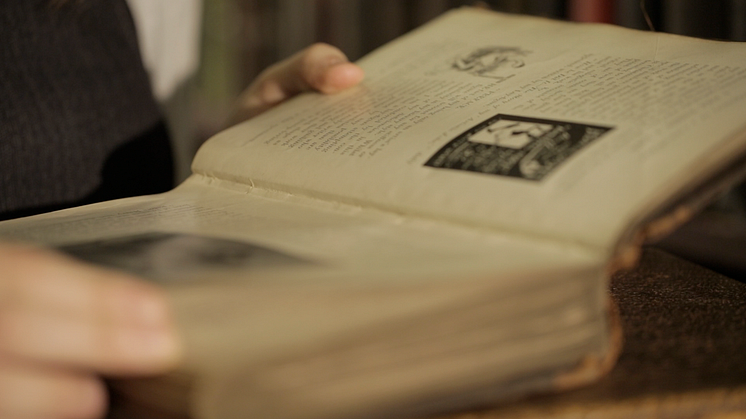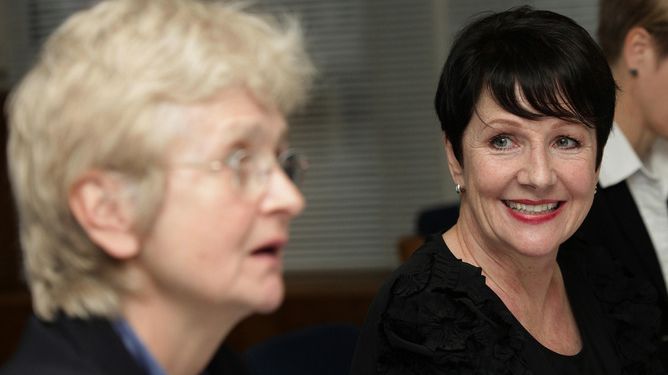Press release -
EXPERT COMMENT: The world speaks the language of men, but after #MeToo women must find their voice
Claudine Van Hensbergen, Senior Lecturer in Eighteenth-Century English Literature at Northumbria University, discusses the Female voice and the the effect of the #MeToo campaign for The Conversation.
It will be gratifying to many women to see the spread of the #MeToo campaign, prompted by the revelations from dozens of women who have accused Hollywood producer Harvey Weinstein of acts of sexual assault since the 1980s. Millions of women across the world have joined the campaign, breaking their silence on a shared experience of sexual harassment and assault.
The fact that it took a shared, global, voice to begin talking about the sexism that still underpins our society shows how difficult it is for lone voices to stand against abuses of male power and privilege. This is not just about Weinstein or the film industry. If some of Hollywood’s most influential women – among them Gwyneth Paltrow, Angelina Jolie, Ashley Judd, Reese Witherspoon – were compelled to stay silent for so long, what chance do most women have to speak truth to power?
The recent murder of the Maltese journalist and blogger Daphne Caruana Galizia, killed by a car bomb near her home, is another example of the difficulty and danger involved in pursuing the truth. Caruana Galizia was an outspoken critic on her native island of Malta, using her blog to expose what she saw as the corruption all around her.
Caruana Galizia also often drew attention to the problematic representation of women in Malta and the government’s inability to endorse positive female role models, levelling criticism at a society in which women should be seen and not heard. In 2014 she drew attention to how Malta had slipped to 99th place out of 142 in global rankings on gender equality, placing it below Azerbaijan, Bangladesh, Zimbabwe and Kazakhstan. Now Malta has lost the one woman, and according to many, the only person, who dared to speak truth to power.
Shared pain, shared silence
Should we be surprised by the murder of a leading journalist, described by her family as the outcome of a “long witch hunt”? Or to learn that dozens of Hollywood celebrities, and those they confided in, felt compelled to keep secret the sexual predations of a Hollywood producer?
Female voice has long been seen as dangerous, deviant, and untrustworthy. My own work is often concerned with the careers of the first women in Britain who made writing their profession, and who sought to make their voices heard in a male-dominated world.
Women like Aphra Behn, Eliza Haywood, Susannah Centlivre and Delarivier Manley wrote some of the first novels in England, Britain’s first journalism, and the most popular plays of the century. Their work was widely read and hugely influential. But they were sneered at in their age on account of their gender. Women, many claimed, shouldn’t write, and certainly shouldn’t write for the public.
Virginia Woolf famously wrote that “all women together ought to let flowers fall upon the tomb of Aphra Behn, for it was she who earned them the right to speak their minds”. But Behn herself conceded that the voice of professional writers was gendered male.
In the preface to her play, The Luckey Chance (1687), she requested “the Priviledge for my Masculine Part the Poet in me … to tread in those successful Paths my Predecessors have so long thriv’d in”, before going on to note that: “If I must not, because of my Sex, have this Freedom, … I lay down my Quill, and you shall hear no more of me … because I will be kinder to my brothers of the Pen, than they have been to a defenceless Woman.” Behn’s words speak clearly to the gendered inequalities of the professional literary marketplace.
In almost every work written by a woman that I read, the author is forced to publicly negotiate her relationship to ideas of truth. This is especially the case when that woman writes about her life, and comments directly on the effects of the society in which she lives. One example is found in the memoirs written by the Duchess of Mazarin in the 1670s. Even though she was a powerfully-connected aristocrat, Mazarin addresses her reader directly to acknowledge the expectation that women remain silent:
"I know the chief Glory of a Woman ought to consist in not making her self to be publicly talked of. And those that know me, know like-wise, that I never too much pleasure in things that make too much Noise. But it is not always in our choice to live our own way."
Do women have any more public credibility now than when Mazarin wrote these words? A survey of US university undergraduates by Benjamin Schmidt suggests not. Schmidt’s database of responses draws upon 14m reviews from the Rate My Professors website to show the differing usage of words according to the gender of the academic reviewed. Positive terms like “smart”, “intellect”, “genius” are far more widely used to describe male academics, while negative terms like “bossy”, “shrill”, “strict” and “demanding” are far more often applied to those that are women.
Tackling the cause, not the symptom
Earlier this year the UN launched a major campaign, #stoptherobbery, to address the issue of gender inequality expressed in the pay gap that leads women to be underpaid – robbed – on average 23% of their income compared to men performing the same work. It was an inequality that was also exposed with the recent publication of the salaries of the BBC’s highest earners. Inequality is most visible when it can be measured in easily quantifiable ways, like the pay cheques people take home. Yet while the UN’s campaign is laudable, it addresses a symptom of gender inequality rather than its cause.
The pioneering work of Australian feminist Dale Spender in the 1970s and 80s showeded how the world we live in is one described and negotiated through a male-centred language. This is a language in which “man comes to stand in for humanity”, “words reserved for women are derivations/deviations from the word for men (actress, woman)” and in which we can immediately perceive sexual double standards in attitudes towards the same behaviour across the genders (for example in the linguistic equivalence of “stud” and “slut”).
How do women find equality in a world governed by a male-centred language, and the male-centred structures it upholds? Equal pay would help, but that won’t change the root of the problem. The most important step is to find a voice. But that, it seems, is still proving hard, and history is set against us. How many more women will lose jobs, reputations, and even their lives in the struggle to make themselves heard?
This article was originally published on The Conversation. To read the article click here
Topics
Categories
Northumbria is a research-rich, business-focused, professional university with a global reputation for academic excellence. To find out more about our courses go to www.northumbria.ac.uk
If you have a media enquiry please contact our Media and Communications team at media.communications@northumbria.ac.uk or call 0191 227 4604.









